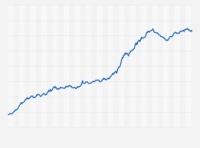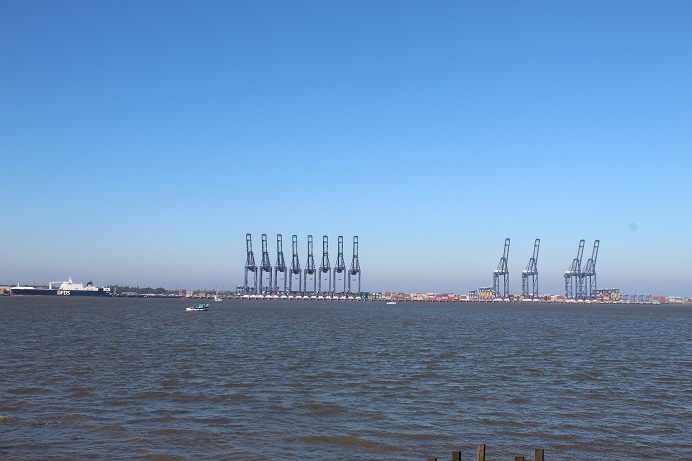Global Food Prices Rose 40 Percent In May 2021
Friday 04 June, 2021 Written by Kevin Reed
RISING PRICES - The United Nations Food and Agriculture Organization (FAO) monthly food price index rose by 40 percent in May, the largest increase in a decade. The year-over-year increase was the sharpest in the past year and was interpreted widely as an indicator of broader price inflation.
The FAO report released on Thursday states: “The May increase represented the biggest month-on-month gain since October 2010. It also marked the twelfth consecutive monthly rise in the value of the FFPI to its highest value since September 2011. ... The sharp increase in May reflected a surge in prices for oils, sugar and cereals along with firmer meat and dairy prices.” The FFPI (FAO food price index) is a measure of the monthly change in international prices of a basket of food commodities.
According to the report, corn prices are 67 percent higher than a year ago, sugar is up nearly 60 percent and prices for cooking oil have doubled. The surging food prices are catastrophic for millions of people around the globe—already facing desperate conditions from the coronavirus pandemic—with hunger driven up rapidly in the poorest countries of the world.
The UN World Food Program reports that 270 million people are currently suffering from acute malnutrition or worse situations in the 79 countries in which the agency operates, double the number in 2019. Among the regions facing a rising hunger crisis that is exacerbated by skyrocketing food prices are Southeast Asia, Africa and Central America.
The World Bank estimates that up to 124 million people sank below the international poverty line—living on less than $1.90 a day—in 2020 as a result of the pandemic. Up to 39 million people more are expected to be added in 2021, taking the total number of those living in extreme poverty to 750 million people.
Analysts attributed the food cost increases to a series of global climate and economic factors. Bloomberg, for example, reported: “Drought in key Brazilian growing regions is crippling crops from corn to coffee, and vegetable oil production growth has slowed in Southeast Asia. That’s boosting costs for livestock producers and risks further straining global grain stockpiles that have been depleted by soaring Chinese demand.”
Among the food supply issues driven by China’s economic expansion are an increased demand for feed to rebuild pig herds that were struck in recent years by disease. The pig feed contains staples, such as corn and soybeans, that are also consumed by people.
Other analysts have pointed to the impact of the COVID-19 pandemic on the global food supply saying that restrictions on movement have increased logistics costs while decreased incomes have driven up demand for less expensive food items.
Economists have warned that the resumption of eating out around the world, following the lifting of COVID-19 restrictions despite the ongoing pandemic, is adding to price increases. Abdolreza Abbassian, senior economist at the FAO, said, “The decline in eating out was not totally compensated with eating at home, but as people start to go to restaurants again, you will see food prices rise.”
Comparing the present increases to the food price surge 10 years ago, chief economist at the United Nations World Food Program, Arif Husain, said, “What is unique about this time is that prices are going up, and at the same time people’s incomes have been decimated. The combination of the two, rising prices and no purchasing power, is the most lethal thing you could deal with.”
The extreme global food price increases and expanding hunger are among the sharpest manifestations of the crisis of the capitalist system, posing the necessity for socialist revolution and economic planning by the international working class as an immediate life-and-death matter.
Food price inflation has developed over the past year in parallel with the spread of the deadly pandemic across the globe. While the imperialist powers have hoarded the vaccines and denied them to the poorest countries, the pandemic is now surging among these populations as the cost of the basic necessities of life are becoming increasingly out of reach.
The Wall Street Journal got right down to the primary concerns of the financial aristocracy amid the food price crisis: social instability, migration and political unrest. In an article entitled “Food Prices Soar Compounding Woes of World’s Poor,” the Wall Street Journal wrote on May 20: “Previous spikes in food and fuel prices contributed to political instability in recent decades, including the ‘Arab Spring’ revolutions in 2011. While nothing of that scale has emerged this year, expensive food is part of the mix in several countries now experiencing unrest.”
Pointing to mass protests in Colombia and Sudan and rising hunger as a primary cause of migration across the US southern border—the number of people facing acute food insecurity jumped 20 percent in Guatemala and tripled in Honduras this year compared to 2019—the Wall Street Journal is raising alarm bells among the capitalist ruling elite.
The Wall Street Journal spoke with Guatemala’s coordinator of humanitarian programs for the global charity Oxfam, Iván Aguilar, who said: “In terms of food insecurity, we are at the worst point in Guatemala in at least 20 years. It’s a very worrisome combination of factors, and making things worse, you have weak governments in the region with scarce means to help the poor.”
The broader economic implications of price inflation have been discussed in recent weeks and are a growing area of concern within ruling circles, such as the US Federal Reserve Bank and the European Central Bank.
While the Biden administration has officially stated that inflation is not a concern, Treasury Secretary Janet Yellen said on May 4 that the Federal Reserve could easily control inflationary outbreaks with interest rate hikes. However, Yellen tried to walk back those comments later that same day because raising the rates would disrupt the flow of cash into the markets that is the basis of the ongoing spectacular rise of share values on Wall Street and the unprecedented increased in the number and wealth of billionaires throughout the pandemic.
Reproduced by the kind courtesy of the World Socialist Web Site.

Image: Felixstowe Docks.
ABC Note: We have noticed with alarm the way that food prices are rising in the wake of the pandemic. Shipping costs have skyrocketted on a global bases.
ABC Comment, have your say below:
Leave a comment
Make sure you enter all the required information, indicated by an asterisk (*). HTML code is not allowed.
Join
FREE
Here










